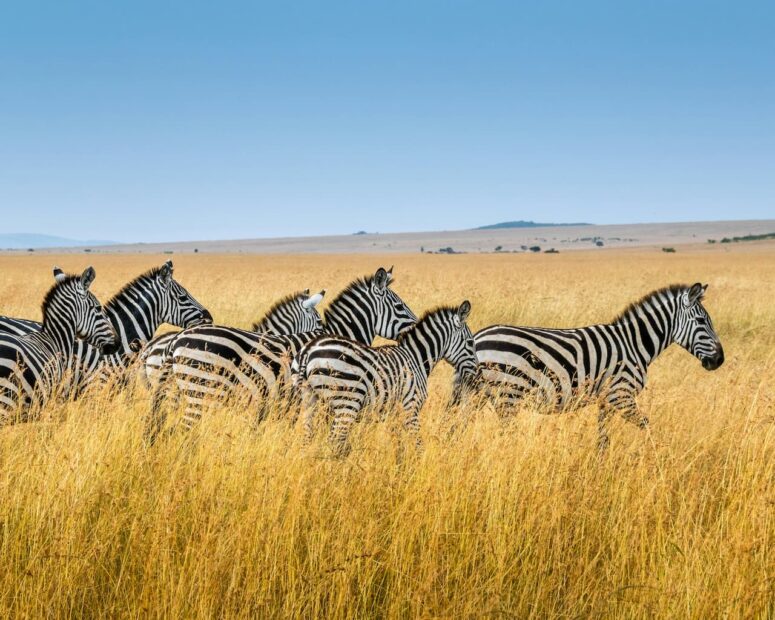The Role of Wildlife Conservation in Preserving Earth’s Natural Heritage
As the human population continues to grow and urbanize, the importance of wildlife conservation becomes more critical than ever. The balance of ecosystems, biodiversity, and the survival of countless species are all intricately linked to how we treat our planet’s remaining wild spaces. But why does wildlife matter so much, and how can we protect it for future generations?
Why Wildlife Matters
Wildlife is not just a resource to be managed; it’s an essential part of our world’s ecological systems. Every animal, plant, and microorganism plays a vital role in maintaining the health and stability of our environment. From pollination by insects to nutrient recycling by bacteria, wildlife helps regulate climate, clean our water, and provide oxygen. Forests, wetlands, and oceans, all home to various species, help absorb carbon dioxide and mitigate climate change.
Moreover, wildlife provides direct benefits to humans, such as food, medicine, and raw materials. For example, many modern medicines are derived from plants and animals found in nature. Additionally, the role of wildlife in maintaining ecosystem services, like clean air and water, ensures our survival and well-being.
Furthermore, wildlife has intrinsic value. Just as humans have the right to exist freely, so too should animals and plants. Preserving these species is about respecting their right to life on Earth, as well as recognizing their irreplaceable role in the planet’s ecological balance. The extinction of one species can have a domino effect, leading to the decline of others and ultimately destabilizing the ecosystem.
Human Impact and the Loss of Biodiversity
Unfortunately, human activities have drastically impacted wildlife populations worldwide. Deforestation, pollution, climate change, and overfishing are just a few examples of how industrialization and modernization have led to the destruction of natural habitats and the extinction of species. The alarming rate at which biodiversity is being lost poses a real threat to the health of our ecosystems.
The agricultural expansion has destroyed habitats for many species, leading to habitat fragmentation. Pollution from factories and improper waste disposal contaminates water sources, affecting aquatic life. Climate change further exacerbates these issues by altering habitats and pushing species to migrate or face extinction. For instance, rising sea levels threaten coastal ecosystems, while increasing temperatures make it difficult for species adapted to colder climates to survive.
Industries, including entertainment and tourism, can have significant impacts on the environment. While activities like gaming provide enjoyment for many, it’s crucial to be mindful of how business activities impact the environment. Sustainable practices and responsible stewardship can help mitigate the negative effects of industry on wildlife. If you’re interested in learning more about the importance of sustainability and its relationship with global entertainment trends, check out kaszinomagyar.net, a platform that balances entertainment with responsibility.
The Importance of Conservation Efforts
To mitigate the damage caused by human activity, wildlife conservation efforts are essential. Conservation initiatives focus on protecting species and their habitats, restoring damaged ecosystems, and promoting biodiversity. Conservationists work on various projects, from rewilding abandoned landscapes to creating protected areas where wildlife can thrive free from human interference.
Protected areas, such as national parks and wildlife reserves, provide safe havens for many endangered species. These areas prevent human encroachment, allowing ecosystems to recover and flourish. International agreements like the Convention on Biological Diversity (CBD) aim to preserve global biodiversity by encouraging nations to adopt sustainable development practices.
Engaging local communities in conservation efforts is also key. Educating people about the importance of wildlife, promoting eco-friendly tourism, and encouraging sustainable farming and fishing practices can all help preserve natural habitats. Local involvement ensures that conservation efforts are culturally appropriate and long-lasting, as community members are often more invested in the success of these initiatives.
What Can We Do to Help?
There are many ways we can contribute to wildlife conservation, whether as individuals or organizations. Here are some simple steps anyone can take:
1. Support Conservation Organizations – Donating to or volunteering with conservation groups can make a real difference in protecting endangered species and habitats. These organizations are often on the front lines of conservation, conducting research, raising awareness, and lobbying for policy changes.
2. Reduce Your Carbon Footprint – By adopting more sustainable lifestyle choices, such as reducing waste, recycling, and using renewable energy sources, we can help minimize our impact on the environment. Driving less, consuming less energy, and reducing plastic waste are all actionable steps that can reduce your personal environmental footprint.
3. Practice Responsible Tourism – When visiting natural areas, ensure you follow guidelines that protect local wildlife and their habitats. Respecting local ecosystems, avoiding littering, and supporting eco-friendly accommodations can help minimize the impact of tourism on fragile environments.
4. Buy Sustainable Products – Choose products that are sourced responsibly, whether it’s food, clothing, or household items. Opting for organic, fair-trade, or sustainably sourced products can reduce demand for goods that contribute to deforestation and habitat destruction.
5. Educate Yourself and Others – Raising awareness about the importance of wildlife and conservation is one of the most powerful tools we have to promote change. Sharing knowledge with friends, family, and colleagues can inspire others to take action and advocate for the protection of wildlife.
Conclusion
Wildlife conservation is not just about saving animals—it’s about preserving the health and beauty of our planet for future generations. By taking action today, we can help ensure that Earth’s wild spaces remain a vital part of our global heritage. Every effort counts, and the time to act is now.
The future of wildlife and our ecosystems depends on the choices we make today. Whether through individual actions or collective efforts, we all have a role to play in conserving the natural world. By embracing sustainability and supporting conservation initiatives, we can make a positive impact on the planet and leave a legacy of environmental stewardship for future generations.
